Get to know some of the United States poets with our Core Collection of classic poetry works, including anthologies, selected works, and individual volumes.
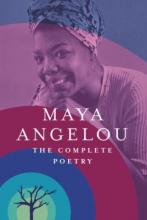
Throughout her illustrious career in letters, Maya Angelou gifted, healed, and inspired the world with her words. Now the beauty and spirit of those words live on in this new and complete collection of poetry that reflects and honors the writer's remarkable life.
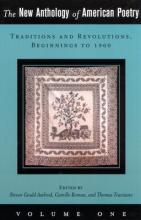
Volume 1 of this comprehensive anthology features a generous selection of Native American materials, then spans the years from the establishment of the American colonies to about 1900, a world on the brink of World War I and the modern era.
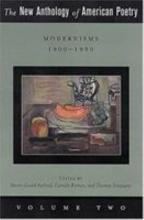
Volume II brings together fifty years of exciting modernisms, and includes over 600 poems by sixty-five American poets writing in the period between 1900 and 1950.
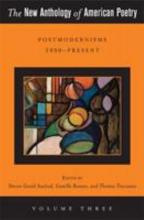
Volume III provides the most compelling and wide-ranging selection available of American poetry from 1950 to the present. Its contents are just as diverse and multifaceted as America itself and invite readers to explore the world of poetry in the larger histor
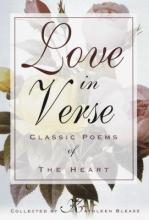
In this lovely literary valentine, more than one hundred evocative, tender poems from some of the most inspired poets of our time celebrate love longed for and finally found; love requited and unrequited; love secret and blazoned across the sky; loves past, present, and yet to come.
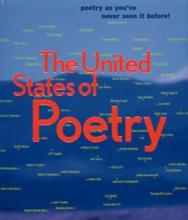
Combines images from the breakthrough TV series on which it is based with over 80 poems to reveal this nation as never before. It is the first anthology to capture the passion, intelligence, and variety of the New Poetry that is sweeping the country. Three years in the making, including a 10-week, 13,000-mile road trip to film the poets on their own turf, this book is for everyone with a love for the power of the word.
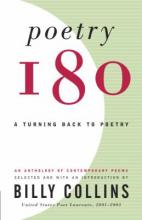
A dazzling new anthology of 180 contemporary poems, selected and introduced by America’s Poet Laureate, Billy Collins. Inspired by Billy Collins’s poem-a-day program with the Library of Congress, Poetry 180 is the perfect anthology for readers who appreciate engaging, thoughtful poems that are an immediate pleasure. A 180-degree turn implies a turning back—in this case, to poetry. A collection of 180 poems by the most exciting poets at work today, Poetry 180 represents the richness and diversity of the form, and is designed to beckon readers with a selection of poems that are impossible not to love at first glance. Open the anthology to any page and discover a new poem to cherish, or savor all the poems, one at a time, to feel the full measure of contemporary poetry’s vibrance and abundance.
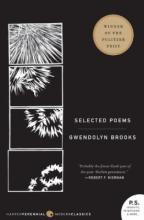
The classic volume by the distinguished modern poet, winner of the 1950 Pulitzer Prize, and recipient of the National Book Foundation Medal for Distinguished Contribution to American Letters, showcases an esteemed artist's technical mastery, her warm humanity, and her compassionate and illuminating response to a complex world.

Virtually everything Black Sparrow publishes is worthwhile, but without Bukowski, whose 40-odd books kept Black Sparrow's bread buttered right up until his death in 1994, none of the rest of it would be possible. Fortunately, "Buk" left plenty of unpublished manuscript behind that, judging from this culling from it, is of a piece with the published stuff. That is, it consists of quasi-autobiographical poems and stories. The poems' lines are only one to six words long, and the stories' sentences aren't much longer.
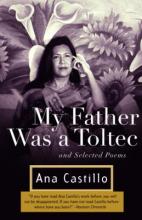
Presents lyrical, streetwise, frequently autobiographical poems, some in English and others in Spanish, including a new, never before published work.

A candid, sexy and wonderfully mood-strewn collection of poetry that celebrates the female aspects of love, from the reflective to the overtly erotic. "Poignant, sexy. . . lyrical, passionate. . . cool and delicate. . . hot as a chili pepper."
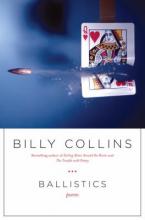
A Billy Collins poem is instantly recognizable. "Using simple, understandable language," notes "USA Today," the two-term U.S. Poet Laureate "captures ordinary life-its pleasure, its discontents, its moments of sadness and of joy." His everyman approach to writing resonates with readers everywhere and generates fans who would otherwise never give a poem a second glance.
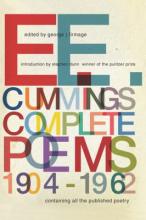
With a new introduction by Pulitzer Prize-winning poet Stephen Dunn, this redesigned and fully reset edition of Complete Poems collects and presents all the poems published or designated for publication by E.E. Cummings in his lifetime.

The only one-volume edition containing all 1,775 of Emily Dickinson's poems.
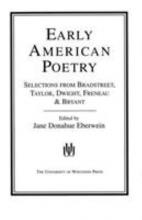
Here is the first major-figure anthology of American poetry of the colonial and early national periods, an indispensable volume for both students and scholars of American literature and civilization. Eberwein goes beyond the most popular and familiar works to include those of unrecognized literary merit, presenting a thoroughly unique approach which illuminates the full range of the writers' themes, forms and poetic voices.
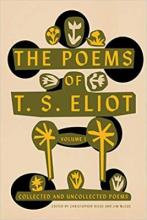
This critical edition of T. S. Eliot's poems establishes a new text of the Collected Poems, 1909-1962, rectifying accidental omissions and errors that have crept in during the century since Eliot's astonishing debut, "The Love Song of J. Alfred Prufrock." As well as the masterpieces, The Poems of T. S. Eliot: Volume I contains the poems of his youth, which were rediscovered only decades later; others that circulated privately during his lifetime; and love poems from his final years, written for his wife, Valerie. Christopher Ricks and Jim McCue have provided a commentary that illuminates the imaginative life of each poem.
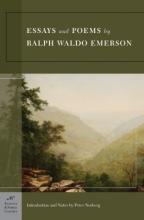
As an adolescent America searched for its unique identity among the nations of the world, a number of thinkers and writers emerged eager to share their vision of what the American character could be. Among their leaders was Ralph Waldo Emerson, whose essays, lectures, and poems defined the American transcendentalist movement, though he himself disliked the term. Emerson advocates a rejection of fear-driven conformity, a total independence of thought and spirit, and a life lived in harmony with nature. He believes that Truth lies within each individual, for each is part of a greater whole, a universal "over-soul" through which we transcend the merely mortal. Emerson was extremely prolific throughout his life; his collected writings fill forty volumes.
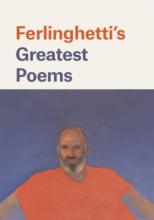
A powerful overview of one of America's most beloved poets: New Directions is proud to present a swift, terrific chronological selection of Ferlinghetti's poems, spanning more than six decades of work and presenting one of modern poetry's greatest achievements.

A deluxe edition of Frost's early poems, selected by poet David Orr for the centennial of "The Road Not Taken" For one hundred years, Robert Frost's "The Road Not Taken" has enchanted and challenged readers with its deceptively simple premise--a person reaches a fork in the road, facing a choice full of doubt and possibility. The Road Not Taken and Other Poems presents Frost's best-loved poem along with other works from his brilliant early years, including such poems as "After Apple-Picking," "The Oven Bird," and "Mending Wall." Award-winning poet and critic David Orr's introduction discusses why Frost remains so central (if often misunderstood) in American culture and how the beautiful intricacy of his poetry keeps inviting generation after generation to search for meaning in his work.

The prophetic poem that launched a generation when it was first published in 1956 is here presented in a commemorative 40th Anniversary Edition.
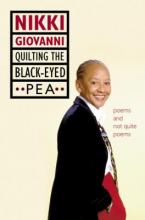
Quilting the Black-Eyed Pea is a tour de force from Nikki Giovanni, one of the most powerful voices in American culture and African American literature today. From Black Feeling, Black Talk and Black Judgment in the 1960s to Bicycles in 2010, Giovanni’s poetry has touched millions of readers worldwide, focusing a sharp eye on politics, racial inequality, violence, gender, social justice and African-American life. In Quilting the Black-Eyed Pea, Giovanni turns her gaze toward the state of the world around her, and offers a daring, resonant look inside her own self as well.
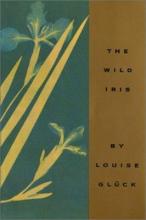
The Wild Iris was written during a ten-week period in the summer of 1991. Louise Cluck's first four collections consistently returned to the natural world, to the classical and biblical narratives that arose to explain the phenomena of this world, to provide meaning and to console. Ararat, her fifth book, offered a substitution for the received: a demotic, particularized myth of contemporary family.
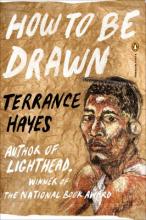
Terrance Hayes explores how we see and are seen. While many of these poems bear the clearest imprint yet of Hayes’s background as a visual artist, they do not strive to describe art so much as inhabit it. Thus, one poem contemplates the principle of blind contour drawing while others are inspired by maps, graphs, and assorted artists. The formal and emotional versatilities that distinguish Hayes’s award-winning poetry are unified by existential focus. Simultaneously complex and transparent, urgent and composed, How to Be Drawn is a mesmerizing achievement.
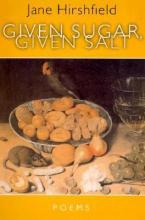
In an extraordinary new collection, the widely acclaimed poet deepens and extends her exploration of time, human engagement, and the sensuous world.
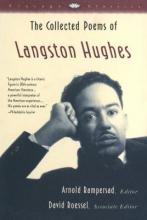
Spanning five decades and comprising 868 poems (nearly 300 of which have never before appeared in book form), this magnificent volume is the definitive sampling of a writer who has been called the poet laureate of African America--and perhaps our greatest popular poet since Walt Whitman. Here, for the first time, are all the poems that Langston Hughes published during his lifetime, arranged in the general order in which he wrote them and annotated by Arnold Rampersad and David Roessel.
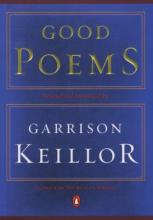
Every day people tune in to The Writer's Almanac on public radio and hear Garrison Keillor read them a poem. And here, for the first time, is an anthology of poems from the show, chosen by the narrator for their wit, their frankness, their passion, their "utter clarity in the face of everything else a person has to deal with at 7 a.m." The title Good Poems comes from common literary parlance. For writers, it's enough to refer to somebody having written a good poem. Somebody else can worry about greatness. Mary Oliver's "Wild Geese" is a good poem, and so is James Wright's "A Blessing." Regular people love those poems. People read them aloud at weddings, people send them by e-mail. Good Poems includes poems about lovers, children, failure, everyday life, death, and transcendence. It features the work of classic poets, such as Emily Dickinson, Walt Whitman, and Robert Frost, as well as the work of contemporary greats such as Howard Nemerov, Charles Bukowski, Donald Hall, Billy Collins, Robert Bly, and Sharon Olds. It's a book of poems for anybody who loves poetry whether they know it or not.
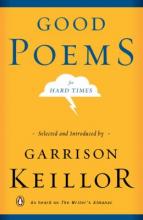
The 185 poems in this follow-up to his acclaimed anthology Good Poems are perfect for our troubled times. Here, readers will find solace in works that are bracing and courageous, organized into such resonant headings as "Such As It Is More or Less" and "Let It Spill." From William Shakespeare and Walt Whitman to R. S. Gwynn and Jennifer Michael Hecht, the voices gathered in this collection will be more than welcome to those who've been struck by bad news, who are burdened by stress, or who simply appreciate the power of good poetry.
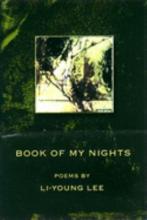
Book of My Nights is the first poetry collection in ten years by one of the world's most acclaimed young poets. In Book of My Nights, Li-Young Lee once again gives us lyrical poetry that fuses memory, family, culture and history. In language as simple and powerful as the human muscle, these poems work individually and as a full-sequence meditation on the vulnerability of humanity.
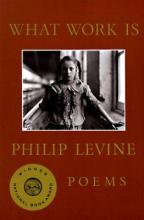
This collection amounts to a hymn of praise for all the workers of America. These proletarian heroes, with names like Lonnie, Loo, Sweet Pea, and Packy, work the furnaces, forges, slag heaps, assembly lines, and loading docks at places with unglamorous names like Brass Craft or Feinberg and Breslin’s First-Rate Plumbing and Plating. Only Studs Terkel’s Working approaches the pathos and beauty of this book. But Levine’s characters are also significant for their inner lives, not merely their jobs. They are unusually artistic, living ‘at the borders of dreams.’ One reads The Tempest ‘slowly to himself’; another ponders a diagonal chalk line drawn by his teacher to suggest a triangle, the roof of a barn, or the mysterious separation of ‘the dark from the dark.’ What Work Is ranks as a major work by a major poet . . . very accessible and utterly American in tone and language.
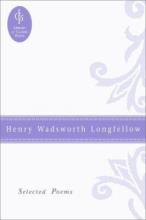
From his youthful works to his final, mature poems, the breadth and beauty of Henry Wadsworth Longfellow's poetry is on display in this wonderful compilation. "A Psalm of Life," which opens the collection, comes from Longfellow's very first book, while "L'Envoi" captures the chill feel of oncoming death. Also included are the ever-popular "Evangeline," "The Song of Hiawatha," "The Wreck of the Hesperus," and more.
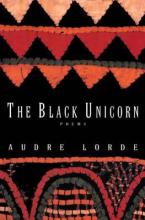
Refusing to be circumscribed by any simple identity, Audre Lorde writes as a Black woman, a mother, a daughter, a Lesbian, a feminist, a visionary; poems of elemental wildness and healing, nightmare and lucidity. Her rhythms and accents have the timelessness of a poetry which extends beyond white Western politics, beyond the anger and wisdom of Black America, beyond the North American earth, to Abomey and the Dahomeyan Amazons. These are poems nourished in an oral tradition, which also blaze and pulse on the page, beneath the reader's eye.
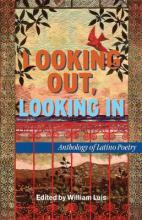
A comprehensive anthology that focuses on poetry from the four largest Latino groups in the United States: Mexican Americans, Cuban Americans, Puerto Ricans and Dominican Americans. Includes works from more than 80 Latino poets writing from the mid-twentieth century to the present, dealing with a variety of issues from those specific to the Hispanic experience to more universal concerns.
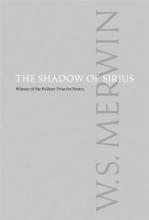
The nuanced mysteries of light, darkness, presence, and memory are central themes in W.S. Merwin’s new book of poems. “I have only what I remember,” Merwin admits, and his memories are focused and profound—the distinct qualities of autumn light, a conversation with a boyhood teacher, well-cultivated loves, and “our long evenings and astonishment.” In “Photographer,” Merwin presents the scene where armloads of antique glass negatives are saved from a dumpcart by “someone who understood.” In “Empty Lot,” Merwin evokes a child lying in bed at night, listening to the muffled dynamite blasts of coal mining near his home, and we can’t help but ask: How shall we mine our lives?
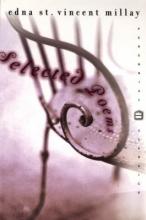
A magnificent anthology of the finest works of Edna St. Vincent Millay, perhaps the premier American lyricist of the twentieth century.

A collection of poetry in which the author draws from ordinary people and events for subject matter.
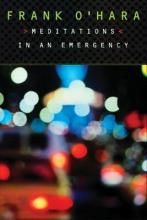
Frank O’Hara was one of the great poets of the twentieth century and, along with such widely acclaimed writers as Denise Levertov, Allen Ginsberg, Robert Creeley, and Gary Snyder, a crucial contributor to what Donald Allen termed the New American Poetry, "which, by its vitality alone, became the dominant force in the American poetic tradition.”
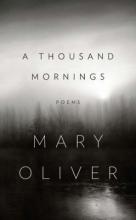
Mary Oliver returns to the imagery that has come to define her life's work, transporting us to the marshland and coastline of her beloved home, Provincetown, Massachusetts. In these pages, Oliver shares the wonder of dawn, the grace of animals, and the transformative power of attention. Whether studying the leaves of a tree or mourning her adored dog, Percy, she is ever patient in her observations and open to the teachings contained in the smallest of moments.
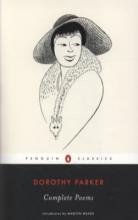
Best remembered as a member of the Algonquin Round Table, the fabled Jazz Age literary coterie, Dorothy Parker built a reputation as one of the era's most beloved poets. Parker's satirical wit and sharp-edged humor earned her a reputation as the wittiest woman in America.
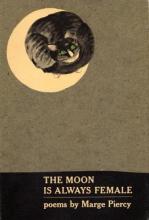
The author's seventh and most wide ranging collection, these poems move from the amusingly elegiac to the erotic, the classical to the funny.
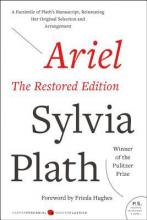
This facsimile edition restores, for the first time, the selection and arrangement of the poems Sylvia Plath left at the point of her death. In addition to the facsimile pages of Sylvia Plath's manuscript, this edition also includes in facsimile the complete working drafts of the title poem 'Ariel' in order to offer a sense of Plath's creative process, as well as notes the author made for the BBC about some of the manuscript's poems, including 'Daddy' and 'Lady Lazarus'
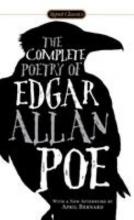
Presents the complete poetry of American poet Edgar Allan Poe, composed between 1827 and 1849, including the familiar selections "Annabel Lee" and "The Raven."
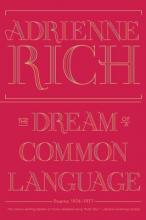
The Dream of a Common Language explores the contours of a woman's heart and mind in language for everybody--language whose plainness, laughter, questions and nobility everyone can respond to. . . . No one is writing better or more needed verse than this
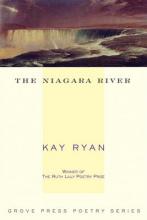
In the citation accompanying Kay's recent award of the prestigious Ruth Lilly Prize, Christine Wiman wrote: "Kay Ryan can take any subject and make it her own. Her poems-which combine extreme concision and formal expertise with broad subjects and deep feeling-could never be mistaken for anyone else's. Her work has the kind of singularity and sustained integrity that are very, very rare…. It's always a dicey business predicting the literary future…[but] for this reader, these poems feel as if there were built to last, and…they have the passion, precision and sheer weirdness to do so."
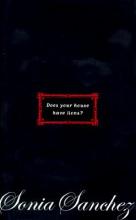
Explores the life of Sonia Sanchez's brother - a vibrant young man who left the South for New York, immersed himself in the city's gay subculture, and became a victim of AIDS in the first years of the pandemic. Sanchez describes her brother's alienation from his family and his illness and death from AIDS with her characteristic tenderness. Told in the voices of sister, brother, father, mother, and ancestors, it is the story of kin estranged.
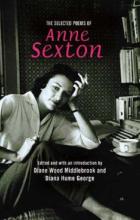
This selection, which is drawn from Anne Sexton's ten published volumes of poems as well as from representative early and last work, is an ideal introduction to a great American poet.
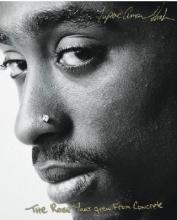
A collection of verse by the late hip-hop star Tupac Shakur includes more than one hundred poems confronting such wide-ranging topics as poverty, motherhood, Van Gogh, and Mandela.
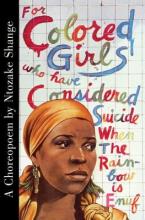
First published in 1975 when it was praised by The New Yorker for "encompassing...every feeling and experience a woman has ever had," for colored girls who have considered suicide/when the rainbow is enuf will be read and performed for generations to come. Here is the complete text, with stage directions, of a groundbreaking dramatic prose poem written in vivid and powerful language that resonates with unusual beauty in its fierce message to the world.
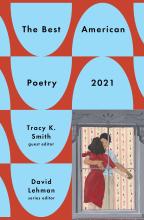
Since 1988, The Best American Poetry series has been "one of the mainstays of the poetry publication world" (Academy of American Poets). Each volume presents a choice of the year's most memorable poems, with comments from the poets themselves lending insight into their work. The guest editor of The Best American Poetry 2021 is Tracy K. Smith, the former United States Poet Laureate, whose own poems are, Toi Derricotte's words, "beautiful and serene" in their surfaces with an underlying "sense of an unknown vastness." In The Best American Poetry 2021, Smith has selected a distinguished array of works both vast and beautiful by such important voices as Henri Cole, Billy Collins, Louise Erdrich, Nobel laureate Louise Glück, Terrance Hayes, and Kevin Young.

With allusions to David Bowie and interplanetary travel, Life on Mars imagines a soundtrack for the universe to accompany the discoveries, failures, and oddities of human existence. In these new poems, Tracy K. Smith envisions a sci-fi future sucked clean of any real dangers, contemplates the dark matter that keeps people both close and distant, and revisits the kitschy concepts like “love” and “illness” now relegated to the Museum of Obsolescence. These poems reveal the realities of life lived here, on the ground, where a daughter is imprisoned in the basement by her own father, where celebrities and pop stars walk among us, and where the poet herself loses her father, one of the engineers who worked on the Hubble Space Telescope.
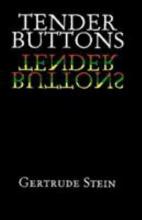
Before becoming the patron of Lost Generation artists, Gertrude Stein established her reputation as an innovative author whose style was closer to painting than literature. Stein's strong influence on 20th-century literature is evident in this 1915 work of highly original prose rendered in thought-provoking experimental techniques.
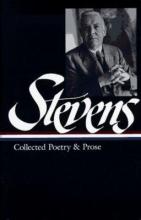
Wallace Stevens' unique voice combined meditative speculation and what he called the "essential gaudiness of poetry" in a body of work of astonishing profusion and exuberance. Now, for the first time, the works of America's supreme poet of the imagination are collected in one authoritative volume.
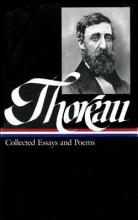
A collection of essential writings features Thoreau's poetry and essays on nature, materialism, conformity, and politics; including such works as "Slavery in Massachusetts," "Civil Disobedience," "A Winter Walk," and "Life Without Principle."
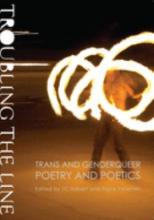
Troubling the Line: Trans and Genderqueer Poetry and Poetics gathers together a diverse range of 55 poets with varying aesthetics and backgrounds. In addition to generous samples of poetry by each trans writer, the book also includes "poetics statements"--reflections by each poet that provide context for their work covering a range of issues from identification and embodiment to language and activism.
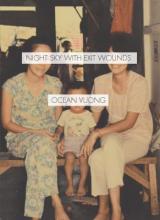
Ocean Vuong's first full-length collection aims straight for the perennial "big"—and very human—subjects of romance, family, memory, grief, war, and melancholia. None of these he allows to overwhelm his spirit or his poems, which demonstrate, through breath and cadence and unrepentant enthrallment, that a gentle palm on a chest can calm the fiercest hungers.
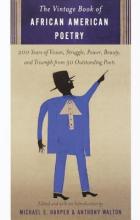
Editors Michael S. Harper and Anthony Walton present the definitive collection of black verse in the United States--200 years of vision, struggle, power, beauty, and triumph from 52 outstanding poets.
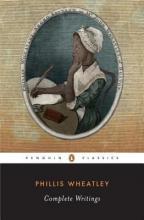
A collection of writings by the eighteenth-century slave and author includes her letters, poetry, short fiction, and essays, along with poetry by such contemporary African American poets as Lucy Terry, Jupiter Harmon, and Francis Williams.
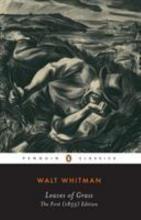
The edition of Whitman's poems as they were first published is accompanied by an in-depth introduction.
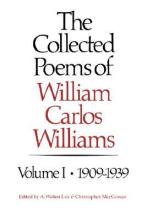
So that readers could more fully understand the extent of Williams' radical simplicity, all of his published poetry, excluding Paterson, was reissued in two definite volumes, of which this is the first.